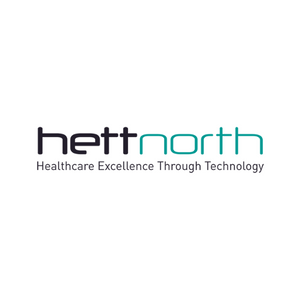In the ever-evolving landscape of healthcare, clinicians are increasingly recognising the pivotal role of population health management in shaping the future of patient care. This proactive approach focuses on improving the health outcomes of entire populations, aiming to prevent diseases and enhance overall well-being. In this blog, we'll delve into eight compelling benefits that make population health management a game-changer for healthcare professionals in the UK.
What is Population Health Management?
Population Health Management (PHM) is a comprehensive and proactive approach to healthcare that focuses on improving the health outcomes of entire populations. It goes beyond traditional healthcare models by leveraging data analytics, health information technology, and evidence-based strategies to assess and address the health needs of specific groups. The central tenet of PHM is to understand the broader determinants of health, including social, economic, and environmental factors, to develop targeted interventions that promote wellness and prevent diseases.
Benefits of Population Health Management
Holistic Patient Care
Population health management shifts the paradigm from individual-centric care to a more holistic approach that considers the health of entire communities. UK doctors can harness the power of data analytics and health information technology to gain insights into the broader health trends within their patient populations. This comprehensive understanding enables targeted interventions and personalised care plans, ultimately improving health outcomes on a larger scale.
Proactive Disease Prevention
Prevention is the cornerstone of population health management. By identifying risk factors and health trends in specific populations, UK doctors can implement proactive measures to prevent the onset of diseases. This may include targeted vaccination campaigns, health education initiatives, and lifestyle interventions. The result is a healthier population with reduced healthcare costs associated with treating preventable conditions.Data-Driven Decision Making
In the age of digital healthcare, data has become a powerful ally for doctors. Population health management leverages robust data analytics tools to extract meaningful insights from large datasets. UK doctors can use this information to make informed decisions about resource allocation, intervention strategies, and the development of evidence-based care protocols. Data-driven decision-making enhances the efficiency and effectiveness of healthcare delivery.
Enhanced Chronic Disease Management
Chronic diseases pose a significant challenge to healthcare systems worldwide. Population health management provides clinicians with the tools to identify individuals at risk of chronic conditions and implement proactive management strategies. This includes remote monitoring, personalised care plans, and patient engagement initiatives. By actively managing chronic diseases at the population level, doctors can improve patient outcomes and reduce the burden on healthcare resources.
Improved Care Coordination
Population health management emphasises the importance of collaboration and care coordination across various healthcare providers and settings. UK clinicians can leverage technology to facilitate seamless communication and information sharing among healthcare teams. This interdisciplinary approach ensures that patients receive coordinated and continuous care, leading to better health outcomes and a more positive patient experience.
Optimised Resource Utilization
Efficient resource allocation is a critical aspect of healthcare management. Population health management enables UK clinicians to identify areas of high healthcare utilization, allowing for targeted interventions to optimize resource allocation. By directing resources towards preventive measures and early interventions, doctors can reduce the strain on emergency services and hospital admissions, resulting in cost savings for the healthcare system.
Patient Empowerment and Engagement
Empowered patients are more likely to actively participate in their own healthcare journey. Population health management fosters patient engagement by providing individuals with the information and tools they need to take control of their health. Clinicians can leverage patient portals, telehealth solutions, and health education initiatives to empower patients, ultimately leading to improved adherence to treatment plans and better health outcomes.
Alignment with Value-Based Care Models
As healthcare systems globally transition towards value-based care, population health management aligns seamlessly with this paradigm shift. UK doctors can focus on delivering high-quality, cost-effective care that prioritises positive patient outcomes. By emphasising preventive measures, early interventions, and coordinated care, population health management contributes to achieving the goals of value-based care and ensuring the long-term sustainability of the healthcare system.
Navigating the Future of Healthcare
The future of healthcare in the UK is undeniably intertwined with the principles of population health management. By embracing this proactive approach, doctors can not only improve the health outcomes of individual patients but also contribute to the overall well-being of entire communities. From data-driven decision-making to enhanced chronic disease management, the benefits of population health management are poised to revolutionise the way healthcare is delivered and experienced in the years to come. As UK doctors navigate the complexities of modern healthcare, population health management stands out as a transformative force shaping the future of our collective health.
Find out More about Population Health Management at HETT North
Join us on 28th February in Manchester to find out more about population health management.
Register for your FREE pass now to enjoy:
- 40+ hours of CPD-accredited content across 6 content streams
- 100+ innovative suppliers
- 1-2-1 meeting opportunities with over 1,400 like-minded peers
- 100+ expert speakers
%20(1).png?width=500&height=58&name=HETT%20insights%20logo%20RGB-04%20(1)%20(1).png)


